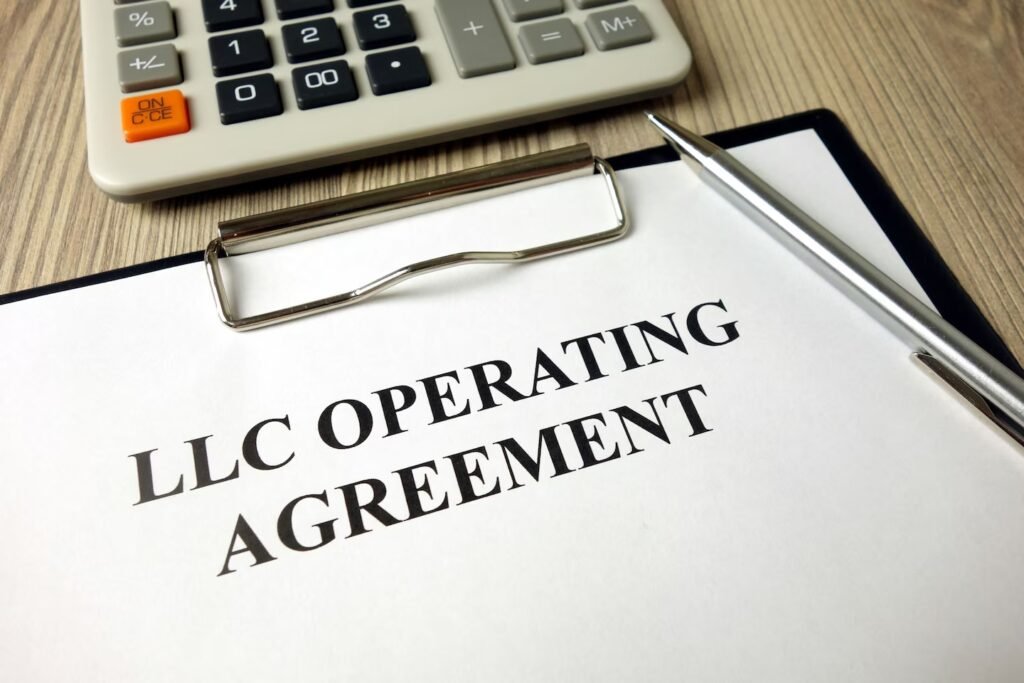Table of Contents
Introduction
Embarking on the journey of entrepreneurship often begins with a vision, a spark of innovation, or a desire to bring a new product or service into the world. For many aspiring business owners, this journey includes the formation of a Limited Liability Company (LLC), a popular business structure known for its flexibility, liability protection, and tax advantages. However, the process of establishing and maintaining an LLC can be daunting, especially for those navigating it for the first time. That’s where this roadmap comes in – a comprehensive guide designed to help entrepreneurs navigate the intricacies of LLC formation and compliance in the United States.
From selecting the right state for incorporation to understanding the legal requirements and ongoing responsibilities, this roadmap will serve as a valuable resource for entrepreneurs at every stage of their business journey. Whether you’re a solopreneur with a passion project or a team of seasoned professionals launching a startup, understanding the ins and outs of LLC formation and compliance is essential for protecting your assets, minimizing risks, and ensuring the long-term success of your venture. So, let’s embark on this journey together, as we demystify the process and empower entrepreneurs to turn their dreams into reality through the establishment of a robust and legally sound LLC.

Understanding LLC Formation
Forming an LLC begins with selecting a suitable business name that complies with state regulations and is not already in use by another entity. Once a name is chosen, articles of organization must be filed with the appropriate state agency, typically the Secretary of State’s office. These articles typically require basic information about the LLC, such as its name, address, registered agent, and purpose.
After filing the articles of organization, it’s crucial to draft an operating agreement, a legal document that outlines the ownership structure, management responsibilities, and operating procedures of the LLC. While not always required by law, having an operating agreement in place can help clarify the rights and obligations of the LLC members and prevent potential disputes down the road.
Next, obtaining an Employer Identification Number (EIN) from the Internal Revenue Service (IRS) is essential for tax purposes, even if the LLC does not have employees. This unique nine-digit number is used to identify the LLC for federal tax filings and other business-related activities. Additionally, depending on the nature of the business and the state where it operates, obtaining licenses, permits, or other regulatory approvals may be necessary to ensure compliance with local laws and regulations.
Throughout the formation process, it’s advisable to seek guidance from legal and financial professionals who can provide valuable insights and ensure that all legal requirements are met. While forming an LLC can be relatively straightforward, attention to detail and adherence to legal formalities are essential to establish a solid foundation for the business and avoid potential legal issues in the future.

Why You Need Branding For Your Company
Branding is the cornerstone of your company’s identity, fostering recognition, trust, and loyalty among customers. It sets you apart from competitors, attracting customers and increasing the perceived value of your offerings. Investing in branding is essential for long-term success and growth.
Compliance Considerations for LLCs
Compliance is a cornerstone of maintaining the legitimacy and protection offered by an LLC structure. One critical aspect of compliance is fulfilling ongoing reporting requirements mandated by the state where the LLC is registered. This typically involves filing annual reports and paying any associated fees to keep the LLC in good standing. Failure to meet these obligations can result in penalties, loss of limited liability protection, or even the dissolution of the LLC.
Tax compliance is another crucial consideration for LLCs. Depending on the number of members and the election made with the IRS, an LLC may be taxed as a sole proprietorship, partnership, S corporation, or C corporation. Understanding the tax implications of each option and fulfilling tax obligations accordingly is essential for avoiding audits, penalties, and other tax-related complications.
Maintaining accurate and up-to-date records is essential for LLC compliance. This includes keeping thorough financial records, meeting minutes, and other documentation related to the operation and management of the business. These records not only help ensure compliance with state and federal regulations but also provide valuable insights for decision-making and financial management.
Finally, compliance with industry-specific regulations, such as licensing requirements or professional standards, may also be necessary depending on the nature of the LLC’s business activities. Staying informed about relevant laws and regulations and proactively addressing compliance issues is vital for protecting the LLC’s reputation and minimizing legal risks.
Overall, a proactive approach to compliance is essential for LLCs to maintain their legal standing, protect their members’ assets, and operate successfully in today’s business environment. By staying informed, seeking professional guidance when needed, and dedicating the necessary resources to compliance efforts, LLCs can position themselves for long-term growth and sustainability.

Operating an LLC in Compliance
Once an LLC is formed, maintaining compliance with various legal and regulatory requirements is crucial for its continued operation. One key aspect of compliance is adhering to the terms outlined in the LLC’s operating agreement. This document governs the internal workings of the business, including the roles and responsibilities of members, decision-making processes, and procedures for handling disputes. Regularly reviewing and updating the operating agreement as needed can help ensure that the LLC operates smoothly and in accordance with its governing rules.
Another essential component of operating an LLC in compliance is fulfilling tax obligations. This includes timely filing federal, state, and local tax returns, as well as paying any taxes owed. Depending on the LLC’s tax classification, tax filings may vary, so it’s essential to understand the specific requirements and deadlines applicable to the business. Additionally, maintaining accurate financial records is critical for supporting tax filings and demonstrating compliance with tax laws.
Compliance with state and federal regulations governing business activities is also paramount for LLCs. This may include obtaining necessary licenses and permits, adhering to labor and employment laws, and ensuring compliance with environmental regulations, if applicable. Staying informed about changes in relevant laws and regulations and proactively adjusting business practices to remain compliant is essential for avoiding fines, penalties, or legal disputes.
Maintaining good standing with the state where the LLC is registered is another important aspect of compliance. This involves fulfilling annual reporting requirements, paying any required fees, and promptly updating the state’s records with any changes to the LLC’s information, such as changes in ownership or address. Failure to meet these obligations can result in administrative penalties or even the involuntary dissolution of the LLC.
Overall, operating an LLC in compliance requires diligence, attention to detail, and a proactive approach to staying informed about legal and regulatory requirements. By prioritizing compliance efforts and seeking professional guidance when needed, LLCs can mitigate risks, protect their members’ interests, and foster a foundation for long-term success.

Strategies for Ensuring Ongoing Compliance
Regular Compliance Audits: Conducting periodic compliance audits can help identify any areas where the LLC may be falling short of its legal obligations. These audits can encompass various aspects of compliance, including tax filings, regulatory requirements, and adherence to the terms of the operating agreement. By proactively identifying and addressing compliance issues, the LLC can minimize the risk of penalties, fines, or legal disputes.
Stay Informed About Regulatory Changes: Laws and regulations governing businesses are subject to change, so staying informed about any updates or amendments is essential for maintaining compliance. Subscribing to relevant newsletters, attending industry seminars, or consulting with legal or regulatory experts can help the LLC stay abreast of any changes that may affect its operations. Implementing procedures to monitor regulatory updates regularly can ensure that the LLC remains compliant with evolving legal requirements.
Implement Compliance Training: Educating employees and members of the LLC about compliance requirements and best practices can help foster a culture of compliance within the organization. Providing training sessions or resources on topics such as tax compliance, data protection, and workplace safety can empower individuals to fulfill their responsibilities and minimize the risk of non-compliance due to ignorance or oversight.
Establish Clear Procedures and Documentation: Developing clear policies, procedures, and documentation for various compliance-related tasks can help ensure consistency and accountability within the organization. This may include documenting processes for tax reporting, record-keeping, obtaining licenses and permits, and handling regulatory inquiries or audits. Having well-defined procedures in place can streamline compliance efforts and reduce the likelihood of errors or oversights.
Engage Legal and Financial Professionals: Seeking guidance from legal and financial professionals with expertise in compliance matters can provide valuable insights and assistance in navigating complex regulatory requirements. Whether it’s obtaining advice on tax planning strategies, interpreting new regulations, or addressing compliance challenges, engaging qualified professionals can help the LLC proactively manage compliance risks and ensure adherence to legal standards.
By implementing these strategies and maintaining a proactive approach to compliance, LLCs can minimize the risk of non-compliance, protect their interests, and build a solid foundation for sustainable growth and success.

Common Pitfalls to Avoid
Neglecting Compliance Obligations: One of the most significant pitfalls for LLCs is neglecting compliance obligations, such as failing to file annual reports, pay taxes on time, or obtain necessary licenses and permits. Ignoring these requirements can lead to penalties, fines, or even legal action, jeopardizing the LLC’s reputation and financial stability. To avoid this pitfall, it’s essential to stay organized, keep track of deadlines, and prioritize compliance efforts.
Mixing Personal and Business Finances: Another common pitfall is commingling personal and business finances, which can erode the limited liability protection offered by the LLC structure. Mixing funds can make it challenging to distinguish between personal and business assets and liabilities, potentially exposing personal assets to business creditors or legal claims. To mitigate this risk, LLC members should maintain separate bank accounts, credit cards, and financial records for their business activities.
Failing to Maintain Accurate Records: Accurate record-keeping is crucial for LLCs to demonstrate compliance with tax laws, regulatory requirements, and the terms of the operating agreement. Failing to maintain detailed financial records, meeting minutes, and other documentation can not only hinder compliance efforts but also make it difficult to track business performance and make informed decisions. Implementing robust record-keeping practices from the outset can help avoid this pitfall.
Ignoring Changes in Regulations: Laws and regulations governing businesses are subject to change, and failing to stay informed about these changes can pose a significant risk to LLCs. Ignoring updates or amendments to relevant laws can result in non-compliance, missed opportunities, or unexpected liabilities. To avoid this pitfall, LLCs should regularly monitor changes in regulations, seek guidance from legal or regulatory experts, and adjust their practices accordingly to remain compliant.
Overlooking the Importance of Contracts and Agreements: Operating without clear contracts or agreements in place can leave LLCs vulnerable to misunderstandings, disputes, and legal liabilities. Whether it’s formalizing agreements with vendors, clients, or employees, or documenting arrangements among LLC members, having clear and comprehensive contracts can help protect the interests of the LLC and its stakeholders. Overlooking this aspect can lead to costly legal battles and damage the reputation of the business.
By being mindful of these common pitfalls and taking proactive steps to avoid them, LLCs can enhance their compliance efforts, mitigate risks, and position themselves for long-term success and sustainability.

Conclusion
Navigating the complexities of LLC formation and compliance is essential for entrepreneurs seeking to establish a solid foundation for their business ventures. From selecting a suitable business name to fulfilling ongoing compliance obligations, the journey of operating an LLC requires diligence, attention to detail, and a commitment to legal and regulatory standards.
Throughout this roadmap, we’ve explored key considerations for LLC formation, compliance strategies, and common pitfalls to avoid. By staying informed, seeking professional guidance when needed, and implementing proactive measures to ensure ongoing compliance, LLCs can minimize risks, protect their interests, and foster a culture of accountability within the organization.
As entrepreneurs continue on their business journey, it’s crucial to recognize that compliance is not a one-time task but an ongoing commitment. By prioritizing compliance efforts, maintaining accurate records, and staying abreast of changes in laws and regulations, LLCs can navigate the complexities of the business landscape with confidence and resilience.
In closing, operating an LLC in compliance requires dedication, perseverance, and a willingness to adapt to evolving legal and regulatory requirements. By embracing these principles and adhering to best practices, entrepreneurs can build a solid foundation for their businesses, unlock opportunities for growth, and achieve their vision of success.




